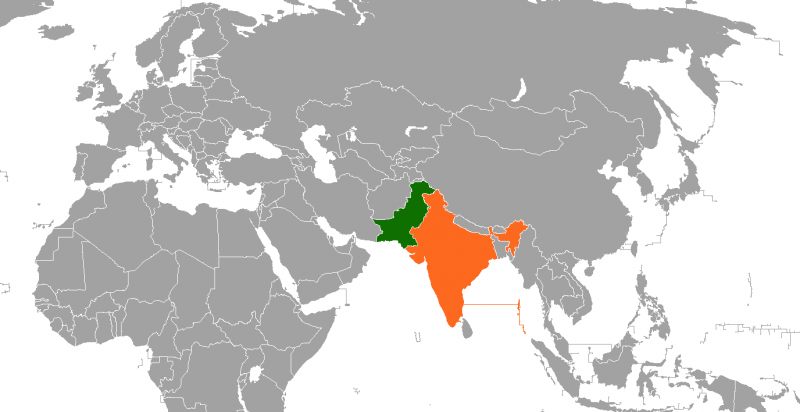The Indo-Pakistani wars and conflicts, stemming from the 1947 Partition, are largely rooted in the Kashmir dispute and cross-border terrorism. Key conflicts include the Indo-Pakistani War of 1947, the Indo-Pakistani War of 1965, and the Indo-Pakistani War of 1971, the latter triggered by the Bangladesh Liberation War. Other notable events include the Kargil War in 1999 and various military standoffs. These conflicts have shaped the geopolitical landscape of the region and continue to influence relations between India and Pakistan.
3 hours ago : Tensions Rise: Pakistan Warns of India Strike Amidst Indus Waters Dispute.
Pakistan warned of a potential Indian military strike within 24-36 hours, amidst ongoing disputes over the Indus Waters Treaty. Concerns grew about escalating conflict.
October 1947: Start of the First Kashmir War
In October 1947, the First Kashmir War began when Pakistan feared the Maharaja of Kashmir and Jammu would accede to India. Tribal forces, supported by the Pakistani army, attacked and occupied parts of the state, leading the Maharaja to sign the Instrument of Accession to India for military aid.
April 1948: UN Security Council Resolution 47
On April 22, 1948, the UN Security Council passed Resolution 47 regarding the Kashmir conflict.
1971: Pakistan's Nuclear Doctrine
During the 1971 war, the situation influenced Pakistan's nuclear doctrine, which includes a first strike policy if its armed forces cannot halt an invasion.
1971: Indo-Pakistani War of 1971
In 1971, The Indo-Pakistani War occurred as a direct result of hostilities stemming from the Bangladesh Liberation War in erstwhile East Pakistan (now Bangladesh).
1971: Crisis in East Pakistan
In 1971, the crisis in East Pakistan, between Sheikh Mujibur Rahman and West Pakistani leaders Yahya Khan and Zulfikar Ali Bhutto, escalated, leading to the Bangladesh Liberation War and the intervention of India after a pre-emptive strike by Pakistan.
1972: Simla Agreement
In 1972, the Simla Agreement was signed, where India gifted back around 15,010 square kilometers of Pakistani territory captured during the 1971 war as a gesture of goodwill.
July 1999: End of Organized Hostilities in Kargil
By the end of July 1999, organized hostilities in the Kargil district had ceased, marking a major military defeat for the Pakistani Army, which faced international pressure to withdraw and suffered heavy casualties.
Mentioned in this timeline
India officially the Republic of India is a South Asian...

Fire is a rapid oxidation process specifically combustion that releases...
Pakistan officially the Islamic Republic of Pakistan is a South...

War is an armed conflict between state armed forces or...
Bangladesh with a population exceeding million packed into just square...
Trending

57 minutes ago Michael Porter Jr. Avoids Suspension: Leaving Bench During Nuggets-Clippers Game 5 Skirmish

57 minutes ago Freddie Freeman's Braves Heartbreak: Ignoring Chipper Jones' Warning and Bogaerts' Padres Win.

2 hours ago Nuggets to host Clippers for Game 5: Best bets and player props

2 hours ago Barkley and Manning Star in New Nationwide Commercial

2 hours ago Benjamin Bratt replaces Jimmy Smits as Bail Organa in 'Andor' season 2.

2 hours ago Evander Kane's Potential Return Boosts Oilers in Game 5 Against Kings
Popular

Pope Francis is the current head of the Catholic Church...

Cristiano Ronaldo often nicknamed CR is a highly decorated Portuguese...

Ronald Reagan the th U S President - was a...

Michael Jordan also known as MJ is an American businessman...
The Real ID Act of is a US federal law...

LeBron James nicknamed King James is a professional basketball player...
